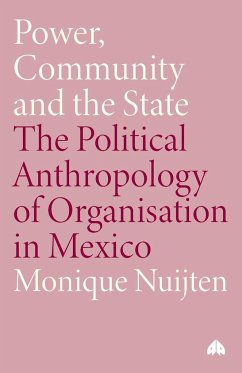An important contribution to the ongoing debates over theorizing state power, in which the author draws on her fieldwork in Mexico to examine the ways in which local agrarian communities negotiate with the state and with local bureaucracies in an apparently hopeless round of mismanagement and corruption -- which yet contains a self-correcting stability.While the ethnography focuses on a particular community at a time of transition, the author draws out the wider implications in ways that will interest not just anthropologists concerned with Mexican ethnography, but also students of political anthropology, more generally, and development studies.
A rethinking of popular political movements, this book looks at new, emerging, mass visions and analyses their impact and potential in new ways.
Hinweis: Dieser Artikel kann nur an eine deutsche Lieferadresse ausgeliefert werden.
A rethinking of popular political movements, this book looks at new, emerging, mass visions and analyses their impact and potential in new ways.
Hinweis: Dieser Artikel kann nur an eine deutsche Lieferadresse ausgeliefert werden.








